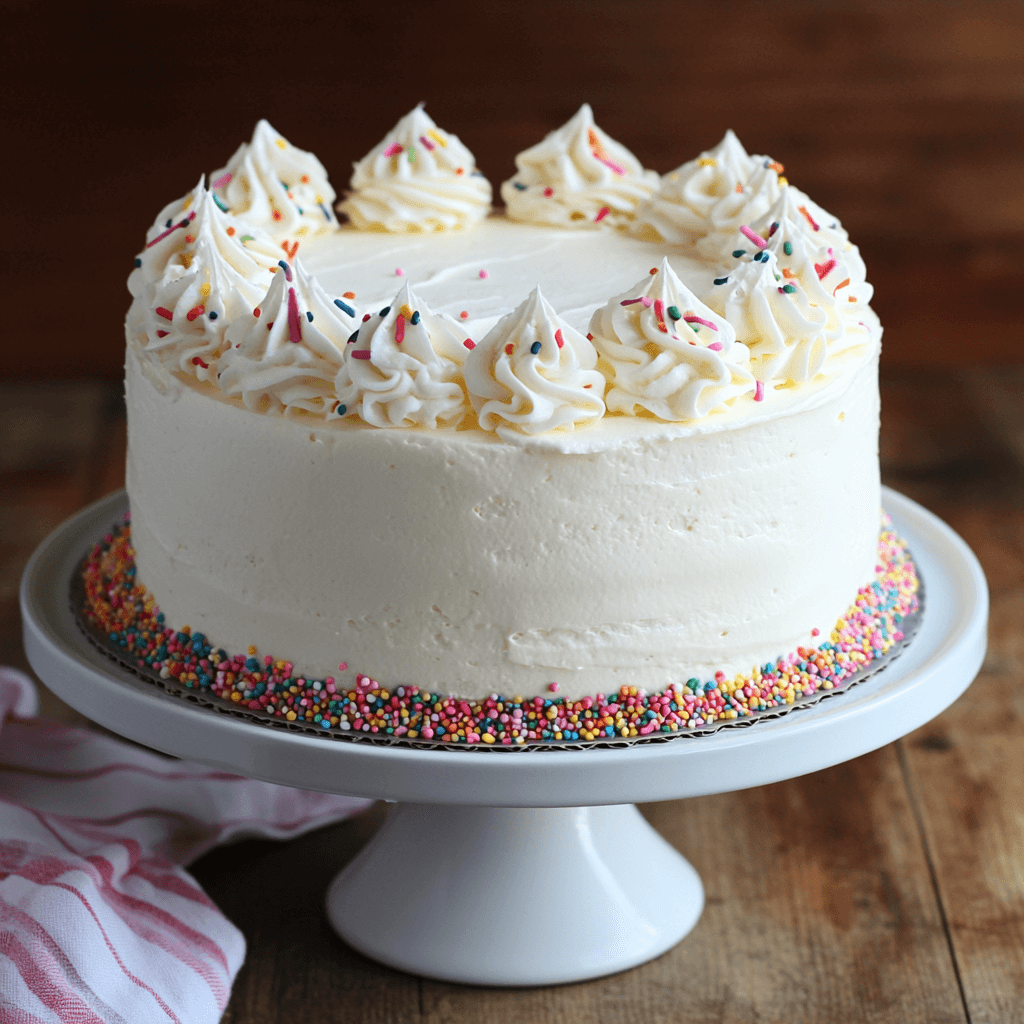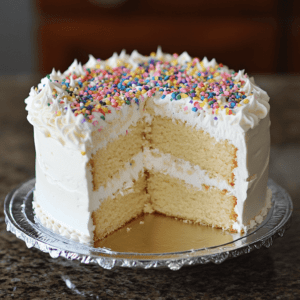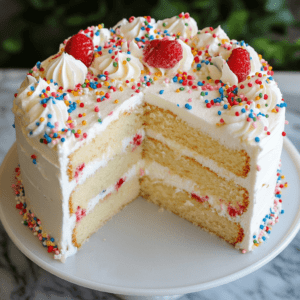Historical events, dates, places, and the iconic personalities behind them have shaped the world we know today. From pivotal battles to groundbreaking discoveries, understanding these moments provides insight into humanity’s journey. This article explores the most significant historical events dates places, highlighting the people and locations that brought these stories to life.
Introduction to Box Cake Mixes and Sour Cream
Box cake mixes are a convenient solution for home bakers, offering pre-measured ingredients that simplify the baking process. However, these mixes often leave room for improvement in terms of texture and flavor. Sour cream, a tangy dairy product, has become a popular addition for enhancing boxed cakes.
Understanding Box Cake Mix: What’s Inside?
Box cake mixes typically include flour, sugar, leavening agents, and flavorings. While these ingredients form a solid base, they lack the rich, nuanced qualities of scratch-made cakes.
The Role of Sour Cream in Baking
Sour cream isn’t just a topping for baked potatoes—it’s a versatile ingredient that adds moisture, fat, and acidity to baked goods. Its unique properties make it an excellent addition to cake mixes.
How Sour Cream Impacts Cake Texture
Moisture Retention: Why It Matters
Incorporating sour cream into your cake batter is a simple yet effective way to elevate your baked goods. Sour cream’s rich, creamy texture adds moisture to the batter, ensuring a soft and tender final product. This is especially beneficial when working with box cake mixes, which can sometimes result in a drier texture.
The fat content in sour cream not only combats dryness but also enhances the cake’s overall flavor, giving it a subtle tanginess that complements both sweet and savory recipes. Additionally, sour cream helps create a denser crumb, making your cake feel indulgent and satisfying.
Whether you’re baking a classic vanilla cake or experimenting with flavors, adding sour cream is a foolproof method to achieve a moist and delicious result that rivals homemade from scratch.
Achieving a Tender Crumb Structure
The fats and proteins in sour cream play a key role in creating a tender, delicate crumb in cakes. These components add richness and structure to the batter, resulting in a soft and enjoyable texture in every bite.
As the cake bakes, the fats in sour cream help to coat the flour particles, preventing excessive gluten development. This keeps the cake from becoming dense or chewy, ensuring a light and moist consistency. The proteins contribute to the cake’s stability, allowing it to hold its shape while remaining soft and fluffy.
Whether you’re baking for a special occasion or a simple treat, adding sour cream to your cake batter guarantees a texture that’s both tender and indulgent, making each slice truly irresistible.
Flavor Enhancements with Sour Cream
Subtle Tanginess: Adding Depth to Sweetness
Sour cream isn’t just a secret to moist cakes—it also enhances the flavor profile of your baked goods. By introducing a subtle tangy undertone, sour cream balances the cake’s sweetness, preventing it from tasting overly sugary.
This slight acidity not only complements flavors like vanilla, chocolate, and citrus but also elevates the overall taste, adding depth and complexity to each bite. The result is a more refined and harmonious flavor profile that appeals to a wider range of palates.
Whether you’re baking a classic layer cake or a decadent bundt, incorporating sour cream ensures your dessert is not only moist but also deliciously well-rounded in flavor.
Balancing Flavors with Sour Cream
Sour cream’s mild acidity is a subtle yet powerful tool in baking, working to enhance the flavors of other ingredients in your cake. This acidity reacts with leavening agents like baking soda or baking powder, helping the cake rise while contributing to a tender, fluffy texture.
Moreover, the tangy notes from sour cream harmonize with the sweetness of the batter, creating a balanced and well-rounded taste. Whether paired with rich chocolate, fruity zest, or warm spices, sour cream acts as a flavor enhancer, making each bite more dynamic and enjoyable.
By incorporating sour cream, you’re not just adding moisture to your cake—you’re elevating its overall flavor profile for a truly delightful dessert.
Scientific Perspective: Sour Cream in Baking Chemistry
pH Levels and Their Effect on Cake Rise
Sour cream’s acidity does more than enhance flavor—it also plays a critical role in achieving a light and fluffy cake texture. When combined with leavening agents like baking soda or baking powder, the acidity creates a chemical reaction that releases carbon dioxide. This reaction helps the cake rise more effectively, resulting in a tender, airy crumb.
By balancing the batter’s pH levels, sour cream ensures optimal leavening, making it an invaluable ingredient in many recipes. Whether you’re baking a classic sponge cake or a rich pound cake, sour cream helps deliver a beautifully risen and satisfying texture that feels light yet indulgent in every bite.
The Role of Fats in Sour Cream for Richness
The fat content in sour cream is a key factor in creating a cake with a creamy, luxurious mouthfeel. This richness not only enhances the overall texture but also adds a smooth, velvety quality to each bite.
As the cake bakes, the fat in sour cream helps to retain moisture, preventing dryness and ensuring a tender crumb. Additionally, it imparts a subtle density that feels indulgent without being heavy. The result is a cake that is not only flavorful but also incredibly satisfying in texture.
Whether you’re aiming for a rich chocolate cake or a delicate vanilla layer cake, the creamy richness from sour cream takes your dessert to the next level of decadence.
Tips for Adding Sour Cream to Box Cake Mix
How Much Sour Cream to Use
To achieve moist, flavorful cakes with a soft texture, try adding sour cream to your box cake mix. For best results, substitute about 1/2 to 1 cup of sour cream into the batter, adjusting the amount based on your personal preference and the desired level of richness.
This addition not only combats dryness often associated with boxed mixes but also enhances the flavor and texture of the cake. The creamy consistency of sour cream blends seamlessly with the other ingredients, making it an effortless upgrade that delivers bakery-quality results at home.
Experiment with the amount to find the perfect balance for your taste, and enjoy cakes that are consistently moist, tender, and delicious.
Substitution Options for Sour Cream
If sour cream isn’t available, Greek yogurt or buttermilk are excellent substitutes that can deliver similar results in your baked goods.
- Greek Yogurt: With its creamy texture and tangy flavor, Greek yogurt closely mimics sour cream in both taste and consistency. Use it as a one-to-one substitute for sour cream in recipes. Opt for full-fat yogurt to achieve the same level of richness.
- Buttermilk: Although thinner in texture, buttermilk’s mild acidity makes it a great alternative for creating a tender crumb and balanced flavor. To maintain the proper consistency, slightly reduce the liquid in your recipe when using buttermilk as a substitute.
Both options ensure your cakes stay moist and flavorful, allowing you to bake with confidence even without sour cream on hand.
Mixing Techniques for Consistency
Ensure the sour cream is evenly incorporated into the batter to avoid lumps.
Exploring Popular Variations with Sour Cream in Cakes
Chocolate Cake with Sour Cream
Sour cream enhances the richness of chocolate, making it an ideal addition to cakes, brownies, and other chocolate-based desserts. Its creamy texture and tangy flavor deepen the chocolate’s intensity, creating a more decadent and luxurious treat.
The fat content in sour cream adds moisture and softness to the dessert, while its acidity balances the sweetness, ensuring the chocolate flavor remains bold and pronounced. Whether you’re making a classic chocolate layer cake or indulgent fudge brownies, incorporating sour cream elevates the overall experience, transforming a simple recipe into a truly unforgettable dessert.
Vanilla Cake with Sour Cream Additions
The tanginess of sour cream is a perfect complement to the simplicity of vanilla, adding a layer of depth to this classic flavor. By introducing a subtle acidity, sour cream balances the sweetness of vanilla-based cakes, cupcakes, and other desserts, resulting in a more complex and refined taste.
In addition to enhancing flavor, sour cream contributes to a moist, tender texture that makes each bite melt in your mouth. Whether you’re baking a traditional vanilla cake or a batch of soft sugar cookies, sour cream transforms a familiar favorite into an elevated, sophisticated treat.
Sour Cream Coffee Cake: A Classic Favorite
This variation combines the moistness of sour cream with the comforting flavors of cinnamon and nuts.
Common Mistakes to Avoid
Overmixing and Its Impact on Texture
Excessive mixing is a common baking mistake that can result in a dense, rubbery cake. Overworking the batter develops too much gluten in the flour, which negatively impacts the cake’s texture, making it chewy rather than light and tender.
To prevent this, mix the ingredients just until they are combined. Once the dry ingredients are incorporated into the wet, stop mixing. A few small lumps are perfectly fine, as they will smooth out during baking.
By being mindful of mixing, you’ll achieve a soft, airy cake with a delicate crumb, ensuring your dessert turns out perfectly every time.
Choosing the Wrong Type of Sour Cream
For the best texture and flavor in your baked goods, always opt for full-fat sour cream. The higher fat content adds richness and moisture to cakes, muffins, and other desserts, resulting in a tender crumb and a creamy mouthfeel.
Low-fat or fat-free alternatives may lack the same level of creaminess and can affect the final texture, potentially leading to drier results. Full-fat sour cream not only enhances the structure of the batter but also elevates the overall flavor, making your baked treats more indulgent and satisfying.
When aiming for bakery-quality results, full-fat sour cream is the secret ingredient that ensures your creations are as delicious as they are perfectly textured.
Health Considerations of Adding Sour Cream
Caloric and Nutritional Implications
Sour cream is a fantastic ingredient for adding richness and moisture to baked goods, but it does come with an increase in calorie content. Its creamy texture and high fat content make it an indulgent addition, so it’s best used in moderation, especially if you’re mindful of calorie intake.
To balance richness and nutrition, consider using smaller amounts or pairing sour cream with lighter ingredients, like Greek yogurt, to achieve similar results. By using it thoughtfully, you can enjoy the benefits of sour cream’s flavor and texture while keeping your recipes balanced.
Alternatives for Health-Conscious Bakers
If you’re looking for a lower-calorie or dairy-free option, there are several substitutes for traditional sour cream that still deliver great results in baking and cooking:
- Low-Fat Sour Cream: This option reduces fat content while maintaining a similar taste and texture, making it a lighter choice for those watching their calorie intake.
- Dairy-Free Sour Cream: Perfect for those with dietary restrictions, these alternatives are often made from ingredients like coconut milk, cashews, or soy. They mimic the creamy texture and tangy flavor of regular sour cream without the use of dairy.
Both options work well in recipes, allowing you to enjoy delicious dishes with a healthier or more inclusive twist. Whether you’re baking a cake or topping a dish, these substitutes ensure you don’t compromise on flavor or texture.
FAQs on Adding Sour Cream to Cake Mix
Can You Use Yogurt Instead of Sour Cream?
Yes, plain Greek yogurt works as a suitable replacement.
Does Sour Cream Make Cake Too Dense?
No, when used correctly, sour cream enhances moisture without compromising fluffiness.
Should You Adjust Other Ingredients When Adding Sour Cream?
Reducing liquids slightly may help maintain the correct batter consistency.
Can You Use Sour Cream in Gluten-Free Cake Mix?
Absolutely! It works just as well in gluten-free versions.
How Long Does a Cake with Sour Cream Stay Fresh?
Sour cream cakes stay moist for up to five days when stored properly.
Does Sour Cream Affect Baking Time?
It might slightly extend the baking time due to increased moisture content.
Conclusion: The Secret Ingredient for Better Cakes
Sour cream is a game-changer for box cake mixes. It transforms texture, enhances flavor, and elevates the overall baking experience. Whether you’re making a chocolate indulgence or a simple vanilla delight, adding sour cream ensures your cakes are anything but ordinary.
Related Article:



